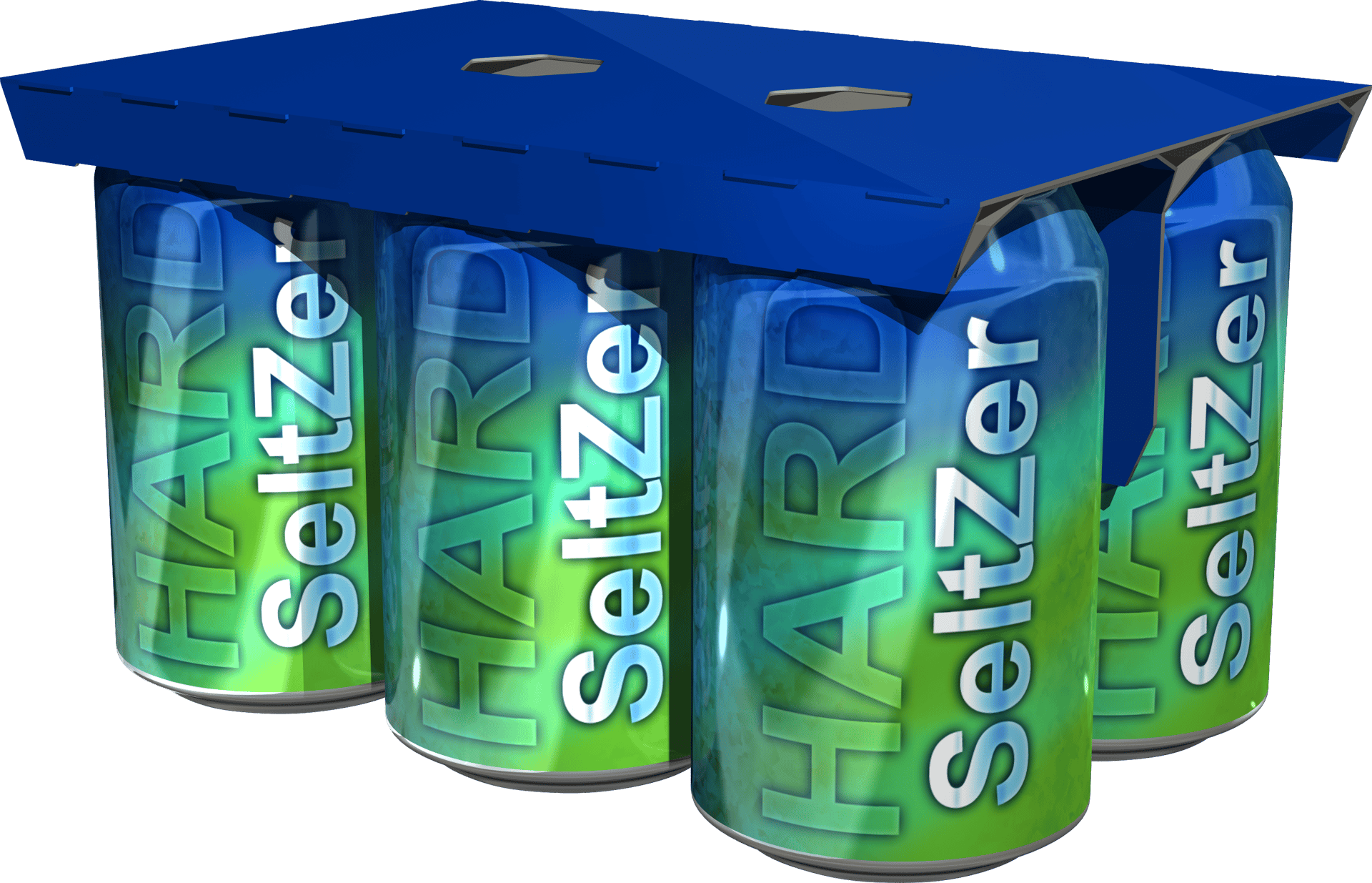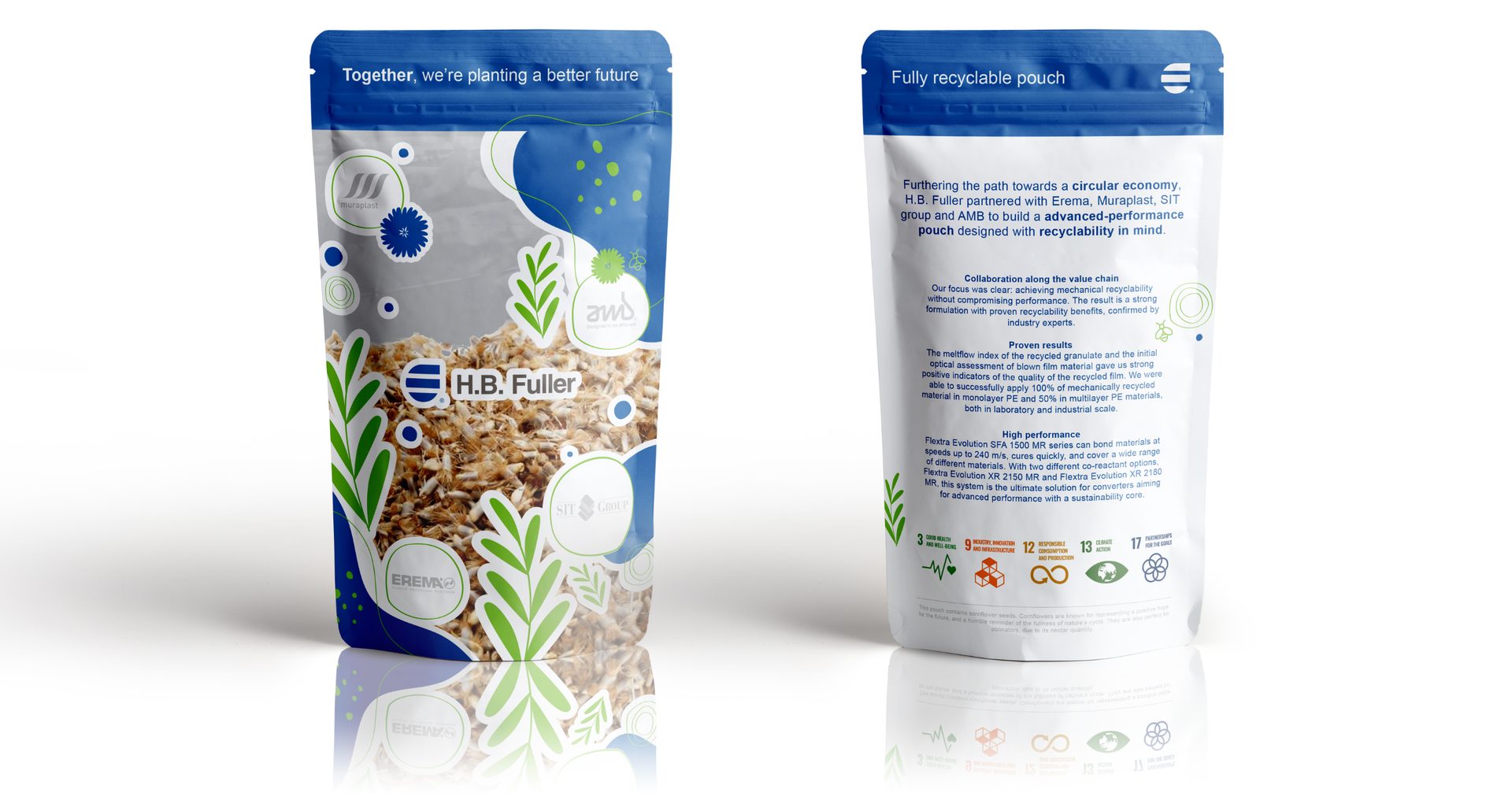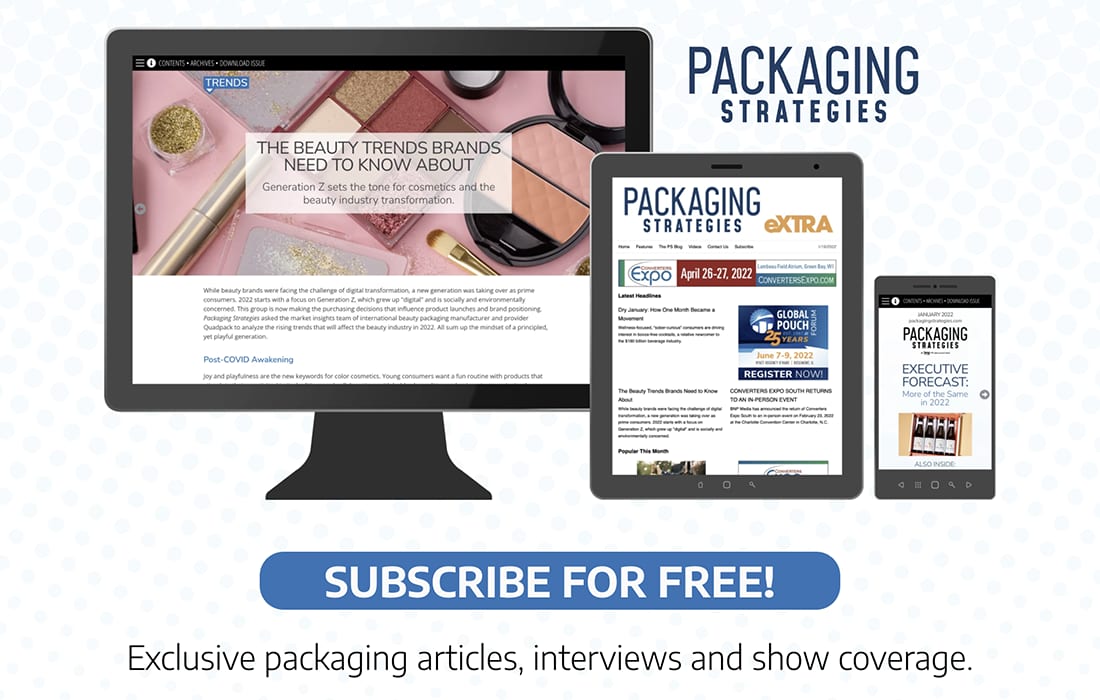

The Little Adhesive That Could
H.B. Fuller, Henkel provide real-life examples of how the humble adhesive can contribute to sustainable packaging.
By Brad Addington
All segments of the packaging industry are witnessing a growing emphasis on sustainability and circularity, and the same trend can be seen in adhesives and sealants.
“Adhesives are a small part of the overall packaging but are essential because they keep everything together,” says Elizabeth Staab, Global Packaging Sustainability Manager at H.B. Fuller, a leading global adhesives provider. “Brand owners are looking for solutions that reduce packaging materials, allow for reuse, and make recycling easy and intuitive for consumers.”
H.B. Fuller has multiple projects involving its scientists designing and engineering technologies that contribute to the circular economy and help its customers “reduce, reuse and recycle,” ranging from formulating adhesives using fossil-free raw materials to developing new, naturally, and responsibly sourced adhesive raw materials.
ADVERTISEMENT
“For example, manufacturers are searching for alternative multi-pack bundling solutions to dematerialize, enable recycling and eliminate unnecessary waste, while still maintaining brand and pack integrity,” Staab said. “There are many opportunities here to reduce the plastic packaging used to hold the individual containers in place.”
H.B. Fuller has accomplished this for the bundling of cans with the KeelClip™ pack.
Aluminum Cans and PET Bottles – And the Role of KeelClipTM
Connected plastic rings and stretch wrap used for multi-packs of aluminum cans and PET bottles are being replaced with alternatives, such as adhesives, cardboard holders and other recyclable materials. H.B. Fuller notes that, regardless of which multi-pack solution a company chooses, customized adhesives ensure excellent pack stability and easy separation of an individual can or bottle from the multi-pack.
KeelClip™ is a rigid paper fastener that not only replaces plastic rings, tops and shrink wrap on aluminum can multi-packs, but also offers merchandising benefits that similar beverage packaging cannot offer. It’s the latest innovation from Graphic Packaging International in recyclable paperboard packaging — a minimal material solution, made of recyclable paper.

H.B. Fuller’s unique adhesive is a crucial component of Graphic Packaging’s KeelClip solution for bundling cans.
Working in close collaboration with Graphic Packaging, H.B. Fuller’s unique, scientist-designed adhesive is providing the adhesive power that enables brand owners to substantially reduce secondary packaging for six-pack aluminum cans.
The H.B. Fuller Advantra® hot melt adhesives are cleanly applied in a specific pattern to the rigid paper keel and the aluminum cans. As the packaging is closed, the Advantra adhesive secures the paperboard structure around the aluminum cans and then securely closes the packaging. These unique Advantra adhesives have the strength to withstand the environmental extremes experienced during shipping, right through to storage in chilled display cabinets.
The adhesive strength endures, enabling the consumer to conveniently carry the multi-pack home. And yet, once home, each aluminum can is easy to remove with a simple twist, with the adhesives remaining on the board, not the can.
Once the multi-pack is consumed, the KeelClip paper-based packaging goes straight into the recycling bin. The H.B. Fuller Advantra adhesives remain on the paper-based packaging and have been proven to separate easily in the repulping process, without affecting the recyclability. The adhesives were tested and certified as excellent by the CTP institute in France.

H.B. Fuller notes that recyclable adhesives play a role in the ease of package recycling.
Another Example of Collaboration
Just as Graphic Packaging and H.B. Fuller teamed up to create KeelClip, adhesives producer Henkel Adhesives Technologies teamed up with other companies in 2022 to create a fully circular flexible packaging prototype.
Saperatec GmbH, a developer of recycling processes for composite packaging made of various materials, debuted the prototype in October at the K Fair Trade Show in Düsseldorf, Germany.
Among the first consumer flexible packaging materials made from post-consumer packaging waste, the prototype is produced in collaboration with two prominent partners: Germany-based packaging film supplier Wentus — whose mono-polyethylene flexible packaging design allows for easy recyclability – and Henkel, which supplies the package’s recycling-optimized adhesive.
“The key to designing sustainable packaging is making sure each component positively contributes to the whole."
The prototype is made possible by a promising new technology: Saperatec’s extended mechanical recycling process for thin-layer composite materials, which results in virgin-similar recyclates.
A two-layer design made entirely from polyethylene (PE), its inner sealing layer comprises more than 50% PCR rLDPE from beverage carton waste. Its outer layer is printed with less than 50% surface coverage, and laminated with Henkel‘s optimized adhesive for recyclability.
Philippe Blank, Senior Manager Circular Economy for packaging adhesives at Henkel, shared the company’s perspective on sustainable packaging with Packaging Strategies, saying: “The key to designing sustainable packaging is making sure each component positively contributes to the whole. The selection of adhesives and coatings while creating the design opens up a whole new world of possibilities for brands and packaging designers.”
